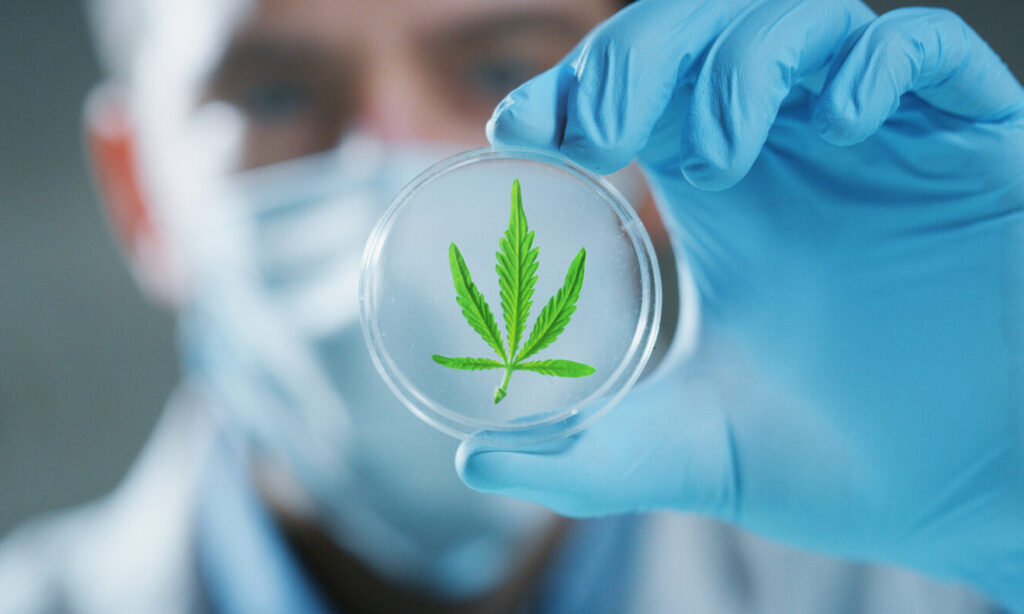
Is there sufficient clinical evidence to reschedule cannabis?
Through
The US Drug Enforcement Administration (DEA) classifies all drugs into five different categories (from Schedule I through V). The DEA’s listing and classification of drugs is included in the Controlled Substances Act (CSA).
Currently, cannabis is classified under Schedule 1 in the US along with other “hard drugs” such as peyote and heroin. Drugs in this scheme have “no known medicinal value and a high potential for abuse.” One can argue that if science can prove that cannabis does indeed have medicinal value, then it can no longer be classified as Schedule 1, right?
Photo by ChrisSteer/Getty Images
A recent study published in the Journal of Cannabis Research showed that nearly 30,000 cannabis-related studies have been conducted to date. However, when it comes to getting FDA approval for drugs, randomized controlled trials (RCTs) are the gold standard for evaluating the safety and efficacy of investigational drugs.
RCTs use “randomization” to remove bias. Because they have comparable groups, they probably provide the best evidence for establishing a causal relationship between an intervention and outcome.
The therapeutic use of cannabis goes back a long way
Cannabis sativa has been used as medicine in different parts of the world for over two millennia. However, due to propaganda and personal interests, cannabis use was banned by the Marijuana Tax Act of 1937 and consequently removed from the 12th Edition of the US Pharmacopoeia. In 1985, pharmaceutical companies in the US received approval to develop synthetic THC preparations in the form of dronabinol and nabilone, which are still used today.
- Dronabinol is used to treat HIV/AIDS-related anorexia and chemotherapy-induced nausea and vomiting (CINV).
- Nabilone is also used to treat CINV and neuropathic pain
Nabiximols is an oromucosal spray containing a 1:1 ratio of THC and CBD and is used to treat MS pain and spasticity. It is approved for use in the UK and Canada, although the drug is still in Phase 3 clinical trials in the US.
Science-based evidence for cannabis redesign
This 2017 review from the National Academies of Science, Eng, and Medicine claims that the only evidence (randomized trials) for medicinal cannabis’ effectiveness is for the following conditions:
- chronic pain
- Chemotherapy-induced nausea and vomiting
- Patient-reported spasticity symptoms in MS
Evidence of chronic pain
Five systematic reviews were considered and finally Whiting et al. 2015 the most comprehensive. It included 28 randomized studies with a total of 2,454 participants. Most of these studies evaluated the effectiveness of nabiximols in relieving chronic pain. The authors concluded that there is substantial evidence supporting cannabis use in the management of chronic pain in adults.
 Photo by Visivasnc/Getty Images
Photo by Visivasnc/Getty Images
Evidence of Chemotherapy-Induced Nausea and Vomiting (CINV)
Here, the review by Whiting et al was used, which included 28 RCTs with 1,772 participants. Cannabinoid therapies included the following:
- nabilone
- Tetrahydrocannabinol
- levonantradole
- dronabinol
- Nabiximol
The authors concluded that oral cannabinoids (dronabinol and nabilone) are effective as antiemetics in the treatment of CINV.
Evidence of MS spasticity
Two systematic reviews were considered here, one of which was Whiting et al. 2015. Nabiximols and nabilone showed a positive improvement in spasticity symptoms in both reviews. The authors concluded that there is substantial evidence supporting the benefits of oral cannabinoids in reducing spasticity symptoms in MS.
Conditions with limited evidence
The authors evaluated the benefits of cannabinoids in the treatment of several other conditions for which they found “insufficient or limited evidence.” This includes:
- Cancer
- irritable bowel syndrome
- Tourett syndrome
- Amyotrophic Lateral Sclerosis
- Huntington’s disease
- Parkinson’s disease
- dystonia
- dementia
- glaucoma
- traumatic brain injury
- Seeks
- fear
- depression
- sleep disorders
- Post-traumatic stress disorder
- schizophrenia and other psychoses
Three conditions seem to be enough evidence to remove cannabis from List 1, but is there other credible research supporting medicinal cannabis for other conditions?
In 2018, the FDA approved the first CBD-based drug, Epidiolex, to treat severe childhood seizures: Lennox-Gastaut syndrome, Dravet syndrome, or tuberous sclerosis complex. Does this confirm the medicinal value of cannabis?
This article originally appeared on MyCannabis and has been republished with permission.

Post a comment: